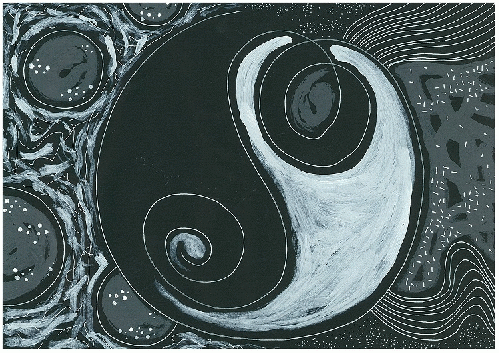The least-written about of the bizarre, counter-intuitive features of quantum mechanics is the treatment of indistinguishable particles. It goes to the heart of (one way) in which quantum reality is different from the everyday reality we deduce from our senses.
To a high degree of approximation, at temperatures we're acclimated to, the nucleus of an atom has a distinct existence that continues over days and weeks and thousands of years. But this is not true of electrons.
One way to think about it: Electrons are constantly swapping identities with one another. Another way: at any given point in space and time, there is a probability of an instance of electron stuff popping out of a probability sea and appearing, but there is no meaning attached to "which electron" it is. A third way: there is only one electron in all the universe, and it travels forward and backward in time*, appearing in different circumstances as though it were a different electron.
The equations of Newton predict the motion of individual particles, but not so the equation of Schroedinger; quantum mechanical equations are about a configuration--think of it as a gestalt, or an entire situation. The Schroedinger equation tells how one gestalt might evolve into another, and each gestalt contains a field of probabilities that an electrons will appear at any given place and time. But the Schroedinger equation says nothing about which electron it is that appears; in fact, it takes explicit account of the fact that all the "different" electrons might be swapping their identities.
Physicists are divided concerning how to think about quantum reality. Most take the pragmatic approach and use QM to calculate the result of experiments, but don't try to draw metaphysical inferences. But other physicists argue passionately about what the equations are trying to tell us about reality.
For me, QM is one gateway to mysticism. What is clear is that the solid reality that logical positivists and reductionist science take for reality is not reality at all, but an illusion. If we have intimations of connectedness and of larger blueprints that infuse meaning into isolated events, then quantum reality gives support and encouragement for taking them seriously, even for deepening and expanding our inborn beliefs.
(For those interested in thinking more along these directions, I recommend Nick Herbert's book.)
--------------------
*When it travels back in time, it appears to us as a positron, another name for an anti-electron.






